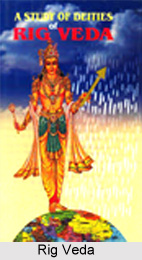 Indian literature is that body of literary works, which perhaps can never be encompassed into one single framework of penning tradition or a single mind-set. Literature in India, is indeed so vast and gargantuan an aspect, that it again cannot be imagined or comprehended in one mere introductory reading. It can only be stated that, sicne the beginning of ancient history of India, Indian literature was there to stay forever, continuously emerging from its versions of metamorphosis. The sheer breathtaking and unsurpassable elements contained within them, can variously be stated to the brilliancy of Indian civilisation, which has matured with ages and ages. Indeed, when speaking about a developing society, one can never ignore literary traditions ever, because any given individual cannot really separate the Indian population from Indian literature. Literature is very much integral to a nation and its historical growth. And when speaking in terms of Indian literature, it will never be an understatement when declared that the pan-Indian scenario is indeed mirrored in the literary bunch of Indian authors and their brainwork.
Indian literature is that body of literary works, which perhaps can never be encompassed into one single framework of penning tradition or a single mind-set. Literature in India, is indeed so vast and gargantuan an aspect, that it again cannot be imagined or comprehended in one mere introductory reading. It can only be stated that, sicne the beginning of ancient history of India, Indian literature was there to stay forever, continuously emerging from its versions of metamorphosis. The sheer breathtaking and unsurpassable elements contained within them, can variously be stated to the brilliancy of Indian civilisation, which has matured with ages and ages. Indeed, when speaking about a developing society, one can never ignore literary traditions ever, because any given individual cannot really separate the Indian population from Indian literature. Literature is very much integral to a nation and its historical growth. And when speaking in terms of Indian literature, it will never be an understatement when declared that the pan-Indian scenario is indeed mirrored in the literary bunch of Indian authors and their brainwork.
Indian literature is vastly conceived to be the oldest in the world. With gigantic cultural diversification, there are approximately two dozen officially recognised languages in India. Over the period of thousands of years, huge literature has been rendered in various languages in India. An element that can also be made prominent is that, a large part of Indian literature concentrates on devotion, drama, poetry and songs. Indeed, history of Indian literature, speaks in such similar lines. Sanskrit language had exclusively dominated the early Indian literary scene, while, languages like Prakrit and Pali too had their chance of fair share, as they were the dialects of the common people. 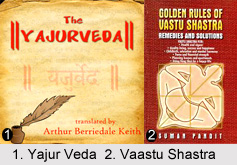 Interestingly enough, it was in fact the Hindu literary traditions, which have predominated a large part of Indian culture. These traditions are ideally reflected in timeless works like the Vedas (comprising Rig Veda, Yajur Veda, Sama Veda and Atharva Veda) and epics such as Ramayana and Mahabharata. Treatises like Vaastu Shastra (architecture), Arthashastra (political science) and Kama Sutra are indeed the true mirror image of the Indian literary excellence.
Interestingly enough, it was in fact the Hindu literary traditions, which have predominated a large part of Indian culture. These traditions are ideally reflected in timeless works like the Vedas (comprising Rig Veda, Yajur Veda, Sama Veda and Atharva Veda) and epics such as Ramayana and Mahabharata. Treatises like Vaastu Shastra (architecture), Arthashastra (political science) and Kama Sutra are indeed the true mirror image of the Indian literary excellence.
Indian literature and its traditional evolution, as can be acknowledged from historical times, was primarily one of verse and also essentially oral. In fact, the themes in Indian literature, the genres in Indian literature, or the umpteen forms of Indian literature, variously have tried to depict such a scenario, through their innumerable meritorious output with time. History states that the earliest works of literature in India, were composed to be sung or recited and were so transmitted for numerous generations before being ultimately written down. As a result, the most ancient records of a text may have also been more belated by several centuries than the hypothesised date of its composition. In addition, perhaps because so much Indian literature is either religious or a re-working of conversant stories from the Sanskrit epics, the Ramayana and the Mahabharata, and the mythological writings acknowledged as Puranas, that the authors often remain unnamed and unidentified. Biographical particulars of the lives of most of the earlier Indian writers survive only in much later stories and legends.
Linguistic and cultural influences of Indian literature are perhaps those most ancient and erstwhile elements which had come to light under the gradually developing Indian literary personalities after the initiation of written literature. In fact, this aspect in Indian literature is also one to look out for, that with a distinguishing age and its society, the times and sections in the literary sections have changed with considerable time. The literary personalities have thus also felt it necessary to take a responsibility upon their shoulder to successfully mirror the age and its times and intense influences.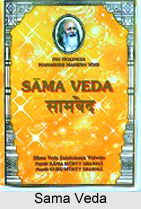 A bulk of traditional Indian literature is derived in theme and form not only from Sanskrit literature, but also from the Buddhist and Jain texts written in the Pali language and the other Prakrits (medieval dialects of Sanskrit). This also holds good for literature in the Dravidian languages of the south, as well as to literature in the Indo-Iranian languages of the north. Invasions from the Persians and Turks, commencing in the 14th century, had yet again resulted in the influence of Persian and Islamic culture in Urdu, although important Islamic strings can be found in other literatures as well, especially those written in Bengali, Gujarati, and Kashmiri. Post the year 1817, entirely new literary values were established, remaining dominant to this day.
A bulk of traditional Indian literature is derived in theme and form not only from Sanskrit literature, but also from the Buddhist and Jain texts written in the Pali language and the other Prakrits (medieval dialects of Sanskrit). This also holds good for literature in the Dravidian languages of the south, as well as to literature in the Indo-Iranian languages of the north. Invasions from the Persians and Turks, commencing in the 14th century, had yet again resulted in the influence of Persian and Islamic culture in Urdu, although important Islamic strings can be found in other literatures as well, especially those written in Bengali, Gujarati, and Kashmiri. Post the year 1817, entirely new literary values were established, remaining dominant to this day.
It is known that Urdu poets almost always penned in Persian forms utilising the ghazal for love poetry, in addition to an Islamic form of bhakti, the masnavi for narrative verse, and the marsiya for elegies. Urdu then gained usage as a literary language in Delhi and Lucknow. The ghazals of Mir and Ghalib mark the most premier achievement of Urdu lyric verse. The Urdu poets were mostly too refined and cultured, urban artists, but some assumed the set phrase of folk poetry, as is typical of the verses in Punjabi, Pushtu, Sindhi or other regional languages. And it was also in this manner that Indian regional literature flourished under the momentous personalities, willing to shell out every detailed information that might be incorporated. Indian literature is thus also an immense storehouse of non-literary works on a variety of themes like law, health, astronomy, grammar, administration. These also form a part of the quintessential Indian literary heritage. India has truly given birth to it`s own distinct set of litterateurs and literature, still in the process of constant up gradation.
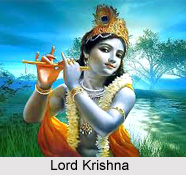 The complete blossoming of the Radha-Krishna cult, under the Hindu mystics Chaitanya in Bengal and Vallabhacharya at Mathura, necessitated bhakti (personal devotion to the Almighty), thus ushering in the Bhakti influence in Indian literature. Although earlier tinctures of this stance can be seen in the work of the Tamil Alvars (mystics who penned ecstatic hymns to Vishnu between the 7th and 10th centuries), a later gush of bhakti flooded every channel of Indian rational and cerebral and religious life, beginning in the late 15th century. Bhakti was also addressed to Rama (an avatar of Vishnu), most notably in the Avadhi (eastern Hindi) works of Tulsi Das; his Ramcharitmanas (Lake of the Acts of Rama, 1574-7) had become the authoritative illustration in the Bhakti genre of Indian literature. The early gurus or founders of the Sikh religion, especially Guru Nanak and Guru Arjun, had composed and dedicated bhakti hymns to their concepts of deity. These can be stated as the first written documents in Punjabi and forms part of the Adi Granth (First, or Original, Book), the sacred scripture of the Sikhs, which was first compiled by Guru Arjun in 1604. During the 16th century, the Rajasthani princess and poet Mira Bai, had addressed her bhakti lyric verse to Lord Krishna, as did the Gujarati poet Narsimh Mehta, still elevating the mystical status of Indian literature.
The complete blossoming of the Radha-Krishna cult, under the Hindu mystics Chaitanya in Bengal and Vallabhacharya at Mathura, necessitated bhakti (personal devotion to the Almighty), thus ushering in the Bhakti influence in Indian literature. Although earlier tinctures of this stance can be seen in the work of the Tamil Alvars (mystics who penned ecstatic hymns to Vishnu between the 7th and 10th centuries), a later gush of bhakti flooded every channel of Indian rational and cerebral and religious life, beginning in the late 15th century. Bhakti was also addressed to Rama (an avatar of Vishnu), most notably in the Avadhi (eastern Hindi) works of Tulsi Das; his Ramcharitmanas (Lake of the Acts of Rama, 1574-7) had become the authoritative illustration in the Bhakti genre of Indian literature. The early gurus or founders of the Sikh religion, especially Guru Nanak and Guru Arjun, had composed and dedicated bhakti hymns to their concepts of deity. These can be stated as the first written documents in Punjabi and forms part of the Adi Granth (First, or Original, Book), the sacred scripture of the Sikhs, which was first compiled by Guru Arjun in 1604. During the 16th century, the Rajasthani princess and poet Mira Bai, had addressed her bhakti lyric verse to Lord Krishna, as did the Gujarati poet Narsimh Mehta, still elevating the mystical status of Indian literature.
Early Hindi literature, under the umbrella of Indian literature, in dialects like Avadhi and Brai, pivoted around religious and philosophical poetry during the medieval period. Sant Kabir and Tulsidas were the greatest exponents of the Hindi literature during this period. With the considerable passage of time, the Khadi boli (dialect) became more outstanding and witnessed a great spate, which gladly continues to this day. During the medieval period, Muslim literary traditions are also known to have dominated a large part of Indian literature, quite understandably bringing in the flourish and prospering of Muslim literature.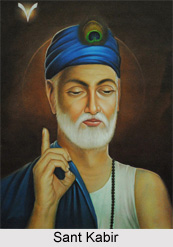 It was also during this Islamic literary surging that the first ever Indian literary movements also began to be witnessed with full pursuance. Muslim rule during the medieval times saw hasty and speedy growth and development of Persian and Urdu literature in India. A huge multiplicity of literature spanning across history, culture and politics was written exhaustively during this period.
It was also during this Islamic literary surging that the first ever Indian literary movements also began to be witnessed with full pursuance. Muslim rule during the medieval times saw hasty and speedy growth and development of Persian and Urdu literature in India. A huge multiplicity of literature spanning across history, culture and politics was written exhaustively during this period.
With the coming of the British in India and the sound establishment of the British Raj, Indian literature was no more to remain the same again. Works began to be written in English language, a quite uncommon scenario during those days of native lack of knowledge and motivation to make the country free. As more and more Indians, however, became well versed with the English language, the number of works in English literature began to grow, with a few of the erudite bunches smoothly coalescing with the British intellectual class. It was precisely during the British Empire and its significant ruling in the 18th or 19th centuries, that the tremendous rise of Indian literary awards and Indian literary organisations began to be founded under much fanfare. During the contemporary, post-Independent and partitioned times, umpteen Indian authors have exultantly made their mark on the world English literature scene. Some of the most noted Indian born or Indian writers in Indian literature can comprise - R. K. Narayan, Vikram Seth, Salman Rushdie, Arundhati Roy, Amitav Ghosh, Khushwant Singh, Anita Desai and Jhumpa Lahiri. The list might just appear incomplete, with the time adding up to `prestigious ness` for Indian literature and its succeeding years to come.



















